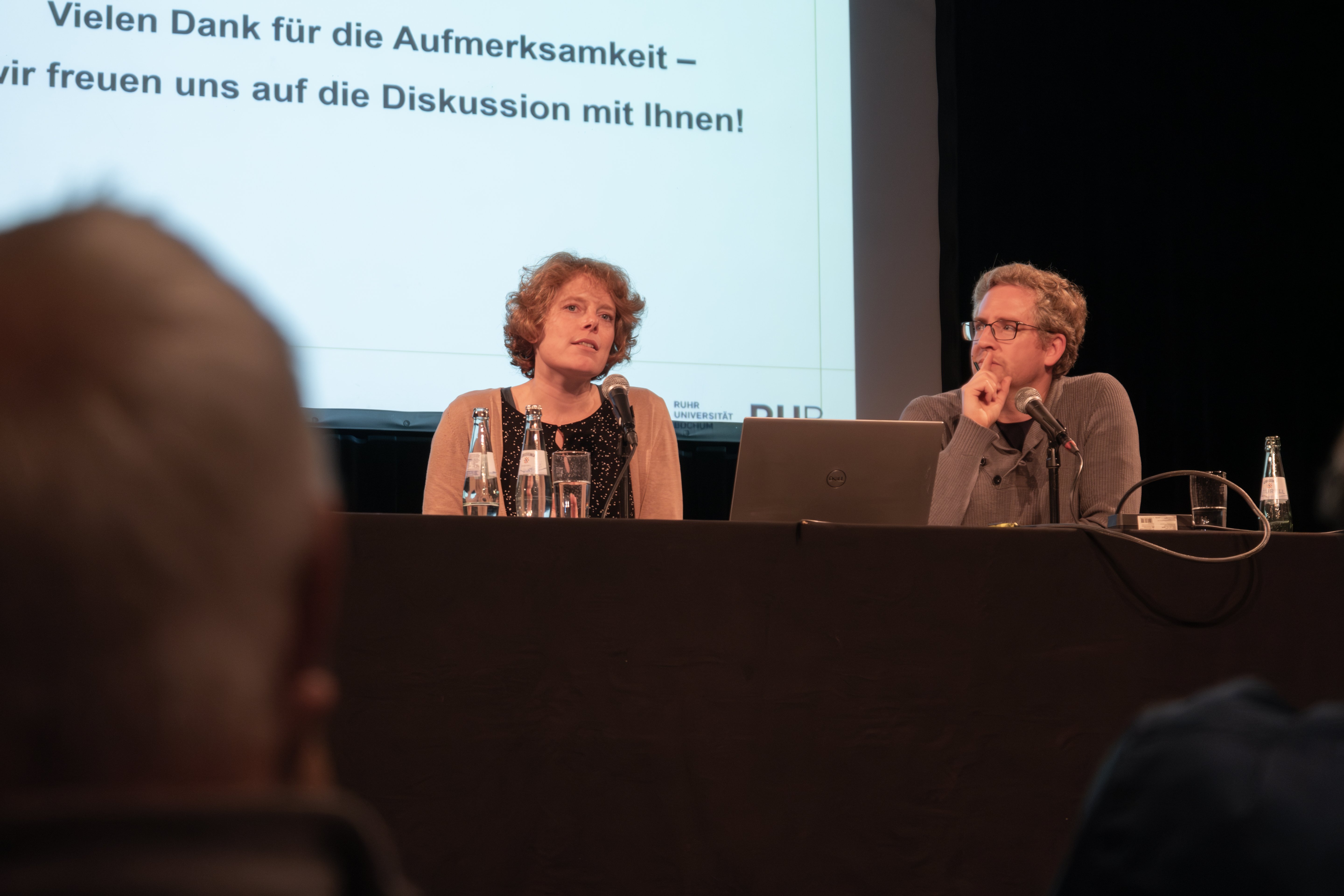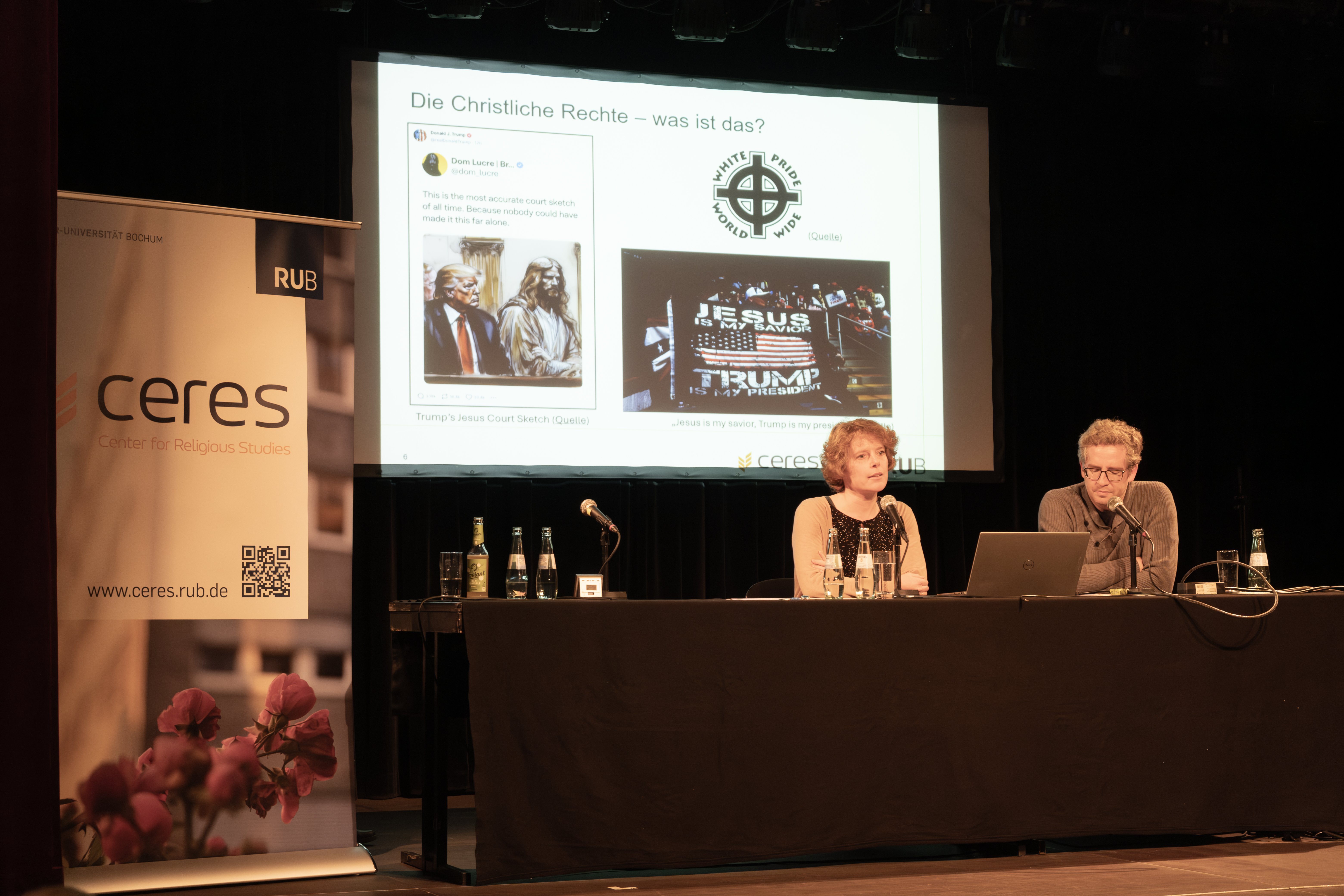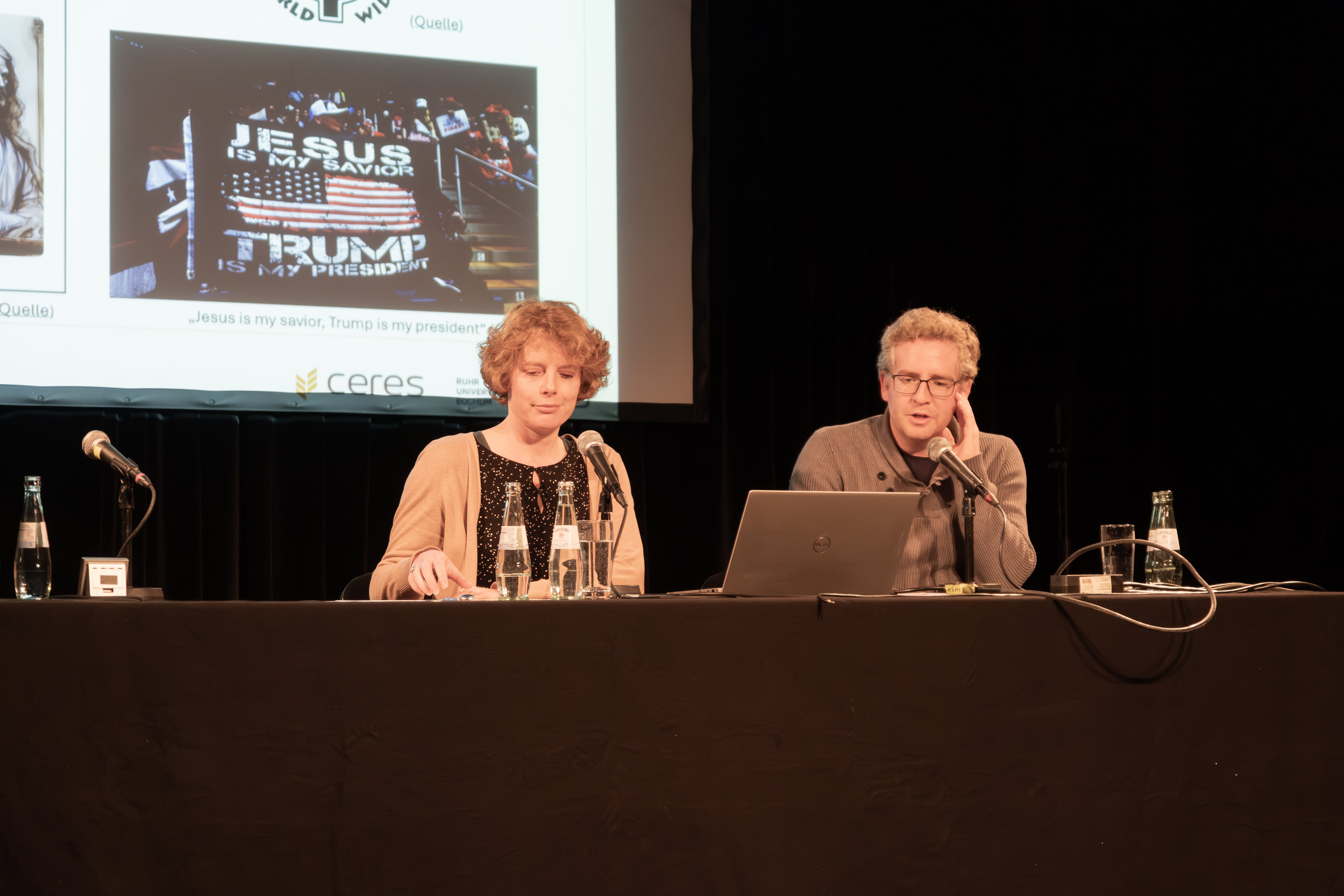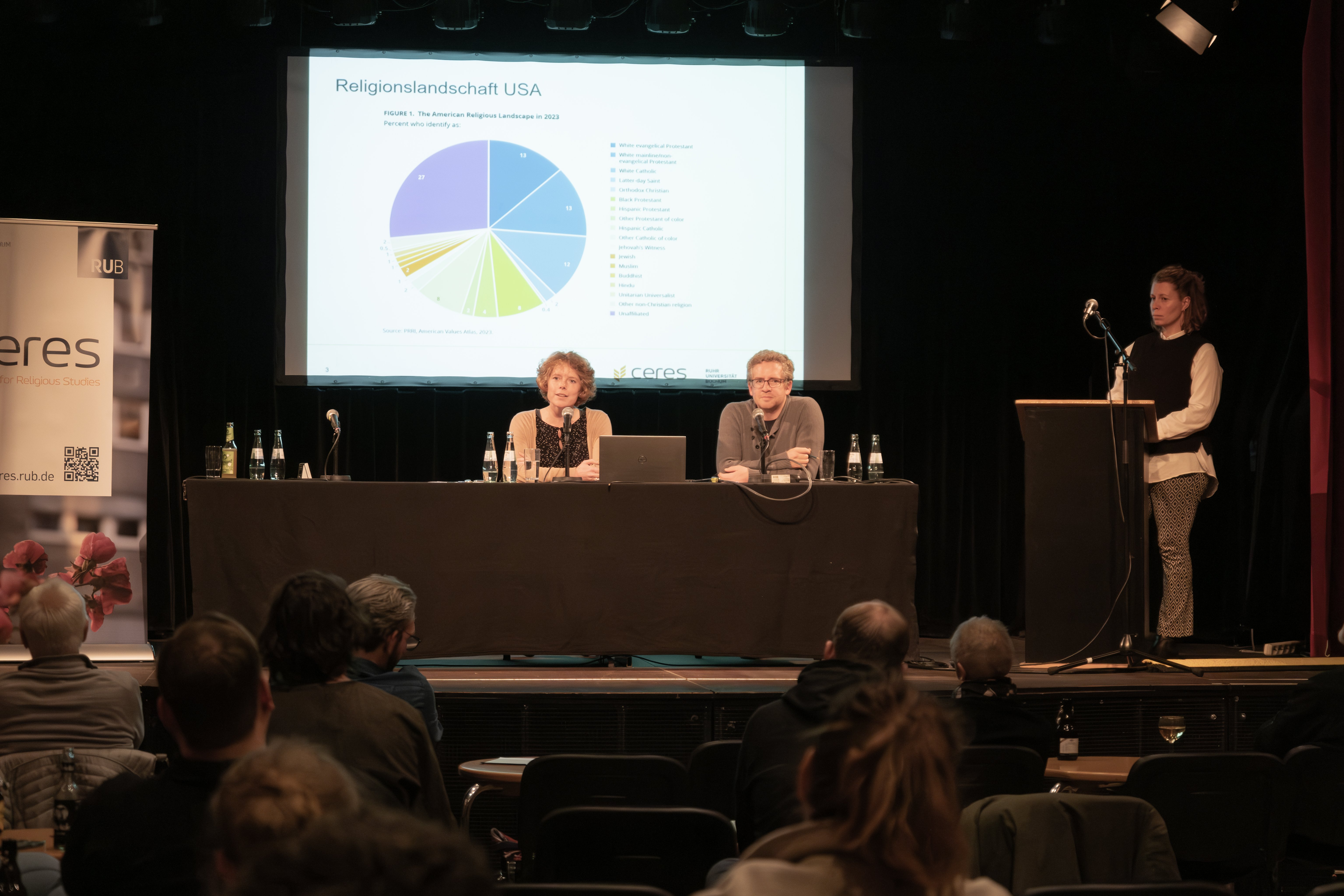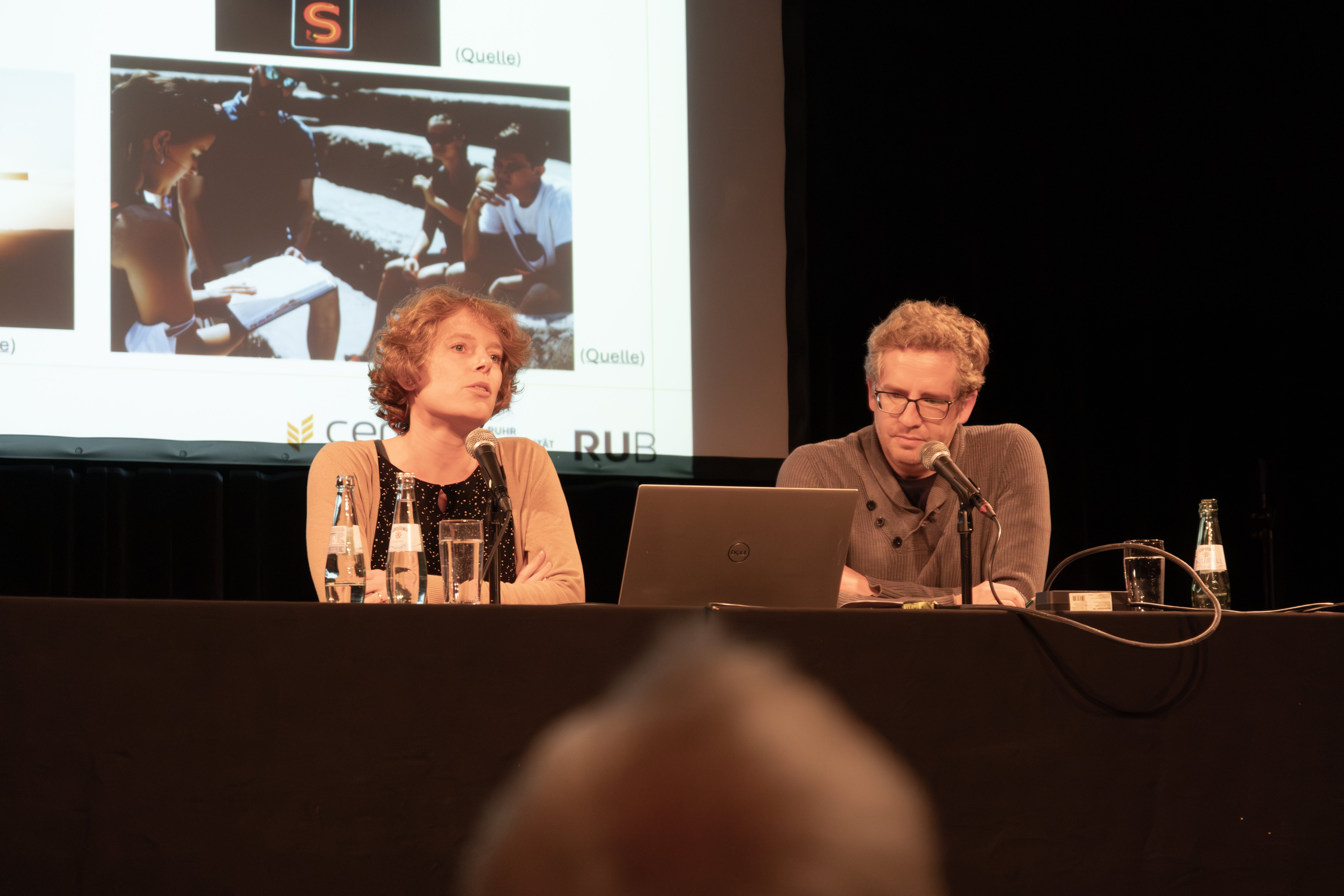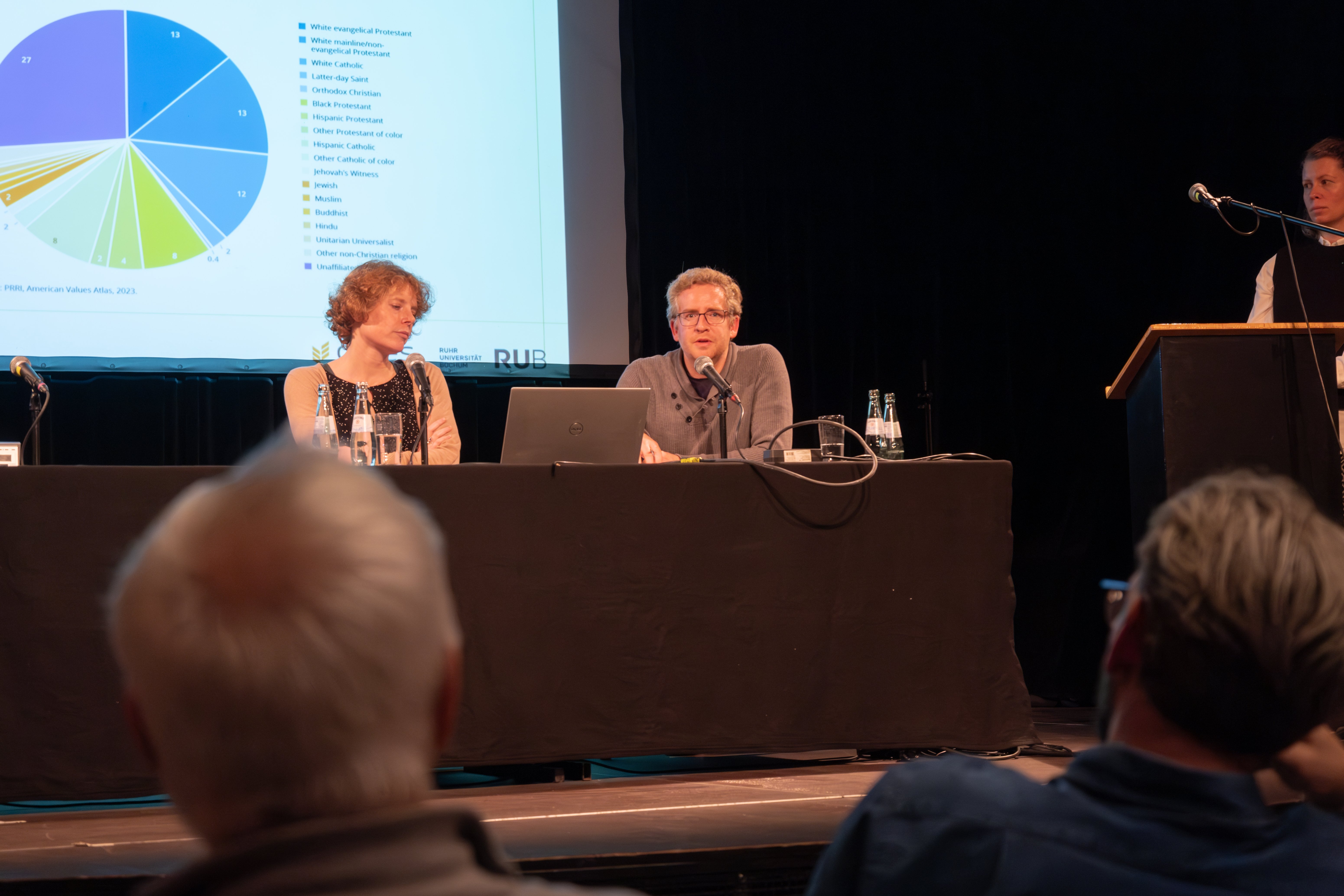
Religion as a tool? The role of conservative Christianity in the US election campaign
The influence of the “Christian Right” in the US election campaign
Freudenberg and Radermacher began the panel discussion by discussing the meaning of terms such as “Christian nationalism” and “evangelical fundamentalism”. They categorized these movements within the political landscape and showed which social phenomena are associated with them. Using statistical data, they also explained the extent to which religious and political convictions, which the Republicans had recently used in their election campaign, have resonated with different social groups and milieus and how this can be explained with regard to the recent history of the USA.
The speakers paid particular attention to the mobilizing power of the “Christian Right”, a significant group within Donald Trump's supporters. Freudenberg and Radermacher explained how conservative Christian forces have shaped the Republican Party into their political home over the decades. On this basis, they analyzed what role this development plays in the current self-image of the Republicans and their electorate.
Paradoxical relationship between Trump as a person and Christian values
Another topic of the panel discussion was Trump's paradoxical relationship with the Christian-conservative spectrum. Although Trump's personal lifestyle, his morally questionable and sometimes illegal statements and actions as well as many of his political views are actually at odds with traditional Christian values, conservative Christians support him almost unconditionally. According to Freudenberg and Radermacher, this support is based on certain promises that Trump made to this group of voters during the election campaign and on overlaps in the political agenda. This dynamic leads to a strange melange: Trump presents himself - often for a specific purpose - as a Christian faithful to the Bible and claims religious symbolism and rhetoric, which has enabled him to position himself as a "God-sent" identification figure in the conservative spectrum. Even if this self-portrayal may be perceived as inauthentic from an objective perspective, it has caught on within conservative US Christianity.
Finally, Freudenberg and Radermacher turned their attention to Germany. They discussed possible parallels with right-wing conservative Christian movements and their influence on the political landscape in Germany. While these groups have only had a limited influence in Germany to date, the speakers emphasized that similar tendencies can be observed to some extent.
Lively exchange with the audience
The panel discussion was followed by an intensive exchange with the audience, who put numerous questions to Freudenberg and Radermacher. The reasons for Trump's success with voter groups that he himself had repeatedly denigrated were discussed in particular, as well as the question of how he manages to unite opposing values and political goals in himself and thus convince as an identity figure.
The panel discussion not only offered well-founded professional insights, but also thrived on the lively participation and great interest of the audience. Thanks to the first-class organization and moderation by Teresa Unterberg from CERES and the excellent cooperation with the team from Kulturbahnhof Langendreer, the event was an all-round successful experience.


